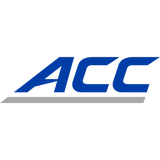
Schools, coaches push for adoption of strengthened agent law
RALEIGH, N.C. (AP) Coaches, college athletics officials and several agents are supporting an effort to strengthen laws that regulate sports agent conduct.
A memo has been sent to officials who work with legislators in each state with the goal of getting the Revised Uniform Athlete Agents Act passed. The act updates a previous version of the law in place in at least 40 states, with the goal of strengthening penalties for violations to make it worth prosecutors' time to pursue criminal cases .
The names of 16 athletic directors at power-conference schools appear on the memo among the 55 names listed in support of the revised act. There are also several notable college coaching figures, including: Connecticut women's basketball coach Geno Auriemma, Virginia football coach Bronco Mendenhall, former LSU football coach Les Miles, former Nebraska football coach Tom Osborne, new Florida State football coach Willie Taggart and North Carolina men's basketball coach Roy Williams.
NFL agents Jack Bechta, Bus Cook, and Bruce and Ryan Tollner are among the agents whose names appear, too.
''I think it demonstrates that there's a number of agents, coaches and college athletics administrators alike who are committed to strengthening protections for young athletes,'' said UNC associate athletic director Paul Pogge, who helped draft the revised act and joined NFL agent Tony Agnone as co-author of the memo.
The Uniform Law Commission (ULC), an organization that works to standardize state laws, approved the revised act in 2015 to update the original version created in 2000. That law typically requires agents to register with states and prohibits them from luring collegiate athletes into contracts by providing them money, gifts or other items of value that jeopardize their college eligibility, though it typically features modest penalties for violations.
The revised act broadens the scope of who falls under its requirements and recommends a higher financial penalty. The changes include requiring schools to report violations to authorities, potentially leading to more prosecutions.
Work has been underway to get state legislatures to adopt the updated act, though its structure can vary from state to state. It has been enacted in eight states and introduced in seven others this year, according to the ULC.
Dale G. Higer, an Idaho attorney who helped craft the revised act, has said his goal is to have it adopted in more than half the states by 2020.
In an email to the Associated Press, Higer said he sent the memo Tuesday night to ULC officials designated as the legislative liaison for each state. Those commissioners then work with legislators there to get the act on the calendar for discussion, review and, ultimately, passage.
The memo mentions the recent federal fraud and bribery scandal that rocked college basketball and led to charges in September against 10 people, including four power-conference assistant coaches. And in North Carolina, the Secretary of State's office has been conducting an investigation dating to 2010 into whether agents or runners violated the state's version of the act by providing Tar Heels football players with improper benefits .
The stiffest penalty in that case so far came in a plea deal for former NFL agent Terry Watson, who received probation, a $5,000 fine and a suspended jail sentence in the spring.
Also in Tennessee, a Florida-based sports agent is contesting a fine of more than $25,000 for representing a pitching prospect from the state before registering with the Tennessee Secretary of State's office. A ruling is pending in that case.
---
Follow Aaron Beard on Twitter at http://www.twitter.com/aaronbeardap
